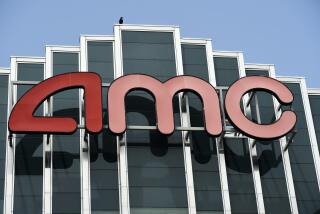Pritzker Group to Acquire AMI for $1.9 Billion
- Share via
In a surprising move, American Medical International agreed Friday to be acquired for $1.9 billion by a group headed by Chicago’s Pritzker family and the investment firm First Boston. If completed, the deal would be the second largest takeover of a U.S. health-care company.
The Pritzker group beat out rival bids including offers from the New York takeover firm Clayton & Dubilier and from Brian M. Freeman, a New Jersey labor consultant, in a four-month struggle for the Beverly Hills-based hospital management firm.
The Pritzker group, a partnership that includes a company headed by former United Technologies Chairman Harry J. Gray, has agreed to pay $26.50 in cash and $1.50 in new AMI stock for each share. First Boston and Chemical Bank have agreed to provide some of the financing for the deal.
The prospective new owners have asked Richard Gilleland, chairman and chief executive of AMI, to remain at those positions. Gilleland said Friday that he intends to stay at AMI. However, Andre C. Dimitriadis, executive vice president and chief financial officer, resigned Friday “to pursue other interests,” according to an AMI spokesman. Dimitriadis had considered resigning in January, but stayed on at Gilleland’s request, the spokesman said.
May Liquidate Some Assets
The Pritzker group is expected to put some of AMI’s 80 health-care facilities on the block and cut costs. AMI has 55 health-care facilities in the United States--12 of them in California--and 25 abroad.
“We will need to look at liquidation opportunities to reduce the debt to make this (buyout) work,” Gilleland said. “We are going to have to liquidate some assets and the international assets look to be the most marketable at the present time. . . . We may well have to liquidate a few of our domestic properties, the facilities not delivering adequate cash flow.”
Gilleland would not identify the hospitals that may be sold, saying the company would conduct a review of all facilities. Gilleland, who was hired as chairman and chief executive in January to boost AMI’s financial fortunes, also said the company will examine the possibility of reducing AMI’s corporate and administrative staff. That staff numbers 740 at offices in Beverly Hills, Marina Del Rey and Orange County.
“That (corporate staff reductions) is something we’ll have to look at,” Gilleland said. “We would prefer to avoid staff reductions and layoffs and make it (cost-savings) through attrition.”
Gilleland said staff reductions at AMI hospitals is unlikely. The company, the nation’s third-largest hospital chain, currently employs about 37,000 at its 55 domestic operations.
Anne Clarke, president of the bargaining unit for Local 535 of the Service Employees International--a group that represents 230 of the 310 nurses, therapists and social service workers at AMI’s Tarzana Regional Medical Center--said the hospital chain has recently installed executives who have managed the hospital and labor relations more effectively.
“Hopefully, they will not make any changes that will affect employees,” Clarke said. “We all have a lot at stake--the pension plan, for example. . . . We’ve invested a lot of time and dedication.”
Some industry analysts believe most of the cost-cutting will on the corporate side.
“There is fat in the system, and there will be cost cutting very soon,” said Rae Alperstein, an analyst at Bateman Eichler, Hill Richards, a Los Angeles investment firm.
Alperstein noted that emergence of the Pritzkers and First Boston surprised most industry analysts. However, Alperstein said AMI received a fair price for the company.
Todd Richter, an analyst at Dean Witter Reynolds, said some might consider the price to be high. But he added that the Pritzker group bid for the company because they have faith in Gilleland and the future of the health care industry.
“There’s been a tremendous increase in interest in the hospital field,” Richter said. “The problems the industry had from 1983 to 1987 are disappearing. Hospital occupancy is not dropping any further and revenues are stronger.”
Financial troubles at AMI prompted some investors to pressure the company to make changes and--later--to look for bidders. Burdened by debt and squeezed by cost cutting in the Medicare program, AMI hit a financial low point when it lost $97.3 million in 1986. The losses prompted management to cut costs and sell 37 hospitals to an employee group in 1988.
The acquisition marks the end of a courtship that began in March, when Dr. M. Lee Pearce, an AMI board member, and Los Angeles-based Shamrock Investments proposed to buy the company for $1.7 billion, or $24 per share. When Clayton & Dubilier officially joined Pearce in June, the group revealed commitments from two big investment banks.
Clayton & Dubilier increased its offer $27 a share, $23 of it cash on Thursday, according to Charles Reilly, managing partner of Shamrock.
“We’re deeply disappointed,” he said. “We have no further comment until we can reflect on, appreciate and understand the bidding process.”
AMERICAN MEDICAL INTERNATIONAL FACTS Corporate headquarters in Beverly Hills.
Operates 80 health care facilities in the United States and abroad.
U.S. employees total about 37,000.
Domestic operations include 49 hospitals in 14 states. Additionally, there are six psychiatric care facilities.
Operates 21 hospitals overseas, including four psychiatric hospitals.
Has a 65% equity in 16 hospitals in the United Kingdom.
Operates 12 hospitals in California employing 5,291 people. Those facilities are:
Arroyo Grande Community Hospital
Circle City Hospital (Corona)
Community Hospital of Santa Cruz
Del Amo Hospital (psychiatric) (Torrance)
Irvine Medical Center
Medical Center of Garden Grove
Medical Center of North Hollywood
Rancho Encino Hospital (Encino)
San Dimas Community Hospital
Sierra Vista Regional Medical Center (San Luis Obispo)
South Bay Hospital (Redondo Beach)
Tarzana Regional Medical Center
Los Angeles Times
More to Read
Inside the business of entertainment
The Wide Shot brings you news, analysis and insights on everything from streaming wars to production — and what it all means for the future.
You may occasionally receive promotional content from the Los Angeles Times.










